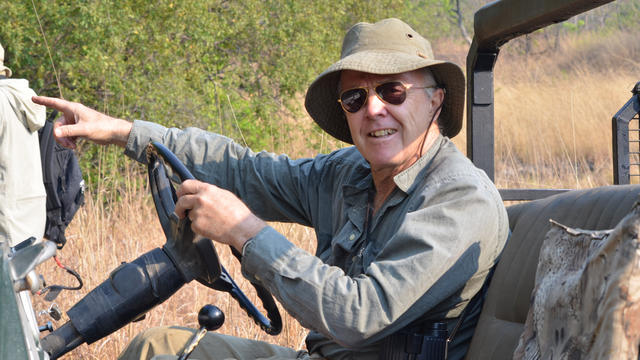
Rhodes University’s research hegemony has once again been recognised by the industry. The Institution’s Research Associate, Dr Andy Moore, has been involved in a ground-breaking new study that has revealed Southern Africa as the birthplace of modern humans (Homo sapiens sapiens), who lived in a "homeland" in the region for 70 000 years before some migrated due to a shift in climate.
Dr Moore was part of a consortium of international scientists who found the human “homeland” to be south of the Greater Zambezi River Basin region, including the entire expanse of northern Botswana, into Namibia to the west, and Zimbabwe to the east. The findings were published on last week in the in the British multidisciplinary scientific journal, Nature. The researchers propose that changes in Africa’s climate triggered the first human explorations, which initiated the development of humans’ genetic, ethnic and cultural diversity. This study provides a window into the first 100 000 years of modern humans’ history.
The aim of the study was to establish a comprehensive catalogue of modern humans’ earliest metagenomes from the so-called “LO” lineage. The LO lineage is predominantly represented within populations broadly classified as Khoisan, described as southern Africans speaking a click language, who may now practise a foraging style. Much of the available metagenome data, until now, had been sourced from studies focused in Botswana. Researchers collected blood samples from 198 Namibians and South Africans who carried metagenomes that were till now poorly represented in the human maternal tree (known as a phylogenetic tree) of all modern humans.
“Our work showed that the lakes progressively contracted, as a result of tectonic forces, which beheaded inflow former rivers like the Zambezi, which once fed into the lake. However, as the lake contacted, the same tectonic forces initiated the wetland of the modern Okavango Delta. Previous research had indicated that the Okavango Delta wetland would likely to have been a very favourable environment for our early ancestors to settle, as apart from fish and other wildlife, there would have been an abundance of fruit in summer, and also bulbs that could be harvested during the winter months,” explained Moore.
The study has also indicated that the presence of this enormous inland body of water would have radically changed the local environment. Evaporation from the lake would have increased rainfall, and this increase in rainfall would have resulted in a local network of active rivers, which would have added to the hospitable habitat of south-central Africa. However, the study suggested that as the lake contracted, rainfall would have decreased, and eventually many of the rivers ceased flowing, and today form a fossil network.
“My role in the paper was therefore essentially as a geomorphologist, providing a context for the habitat of northern Botswana during the period when, based on the genetic evidence, we concluded that Anatomically Modern Humans evolved, and later spread out to the northeast and southwest,” added Moore.
Besides the international academics, Dr Moore was working with University of Pretoria Professors Vanessa Hayes and Riana Bornman.
